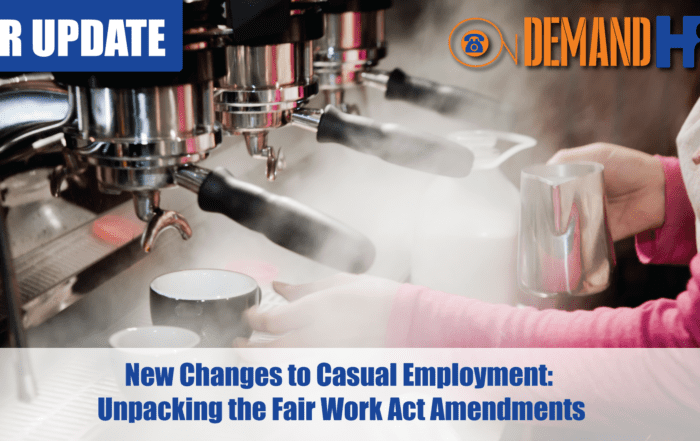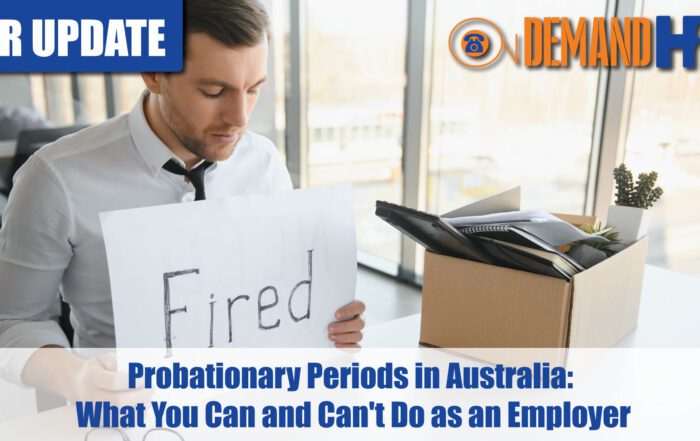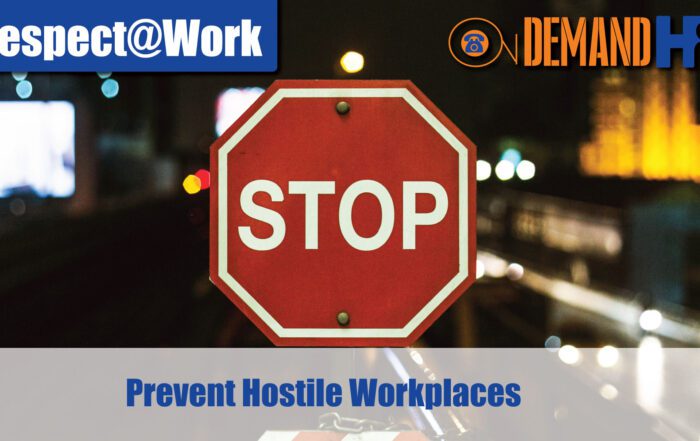Isolation & Essential Worker Update
As you may be aware, the NSW Government has made multiple changes to the Public Health Orders in relation to the isolation requirements for people who are considered close contacts but work in critical industries. We have received multiple queries about how these isolation exemptions will affect employers, especially as the lack of employees is putting a significant strain on many industries. If you have any questions regarding the changes to the health order or require any further assistance, we can arrange for a complimentary consultation as well as a detailed strategic action plan which you can access by clicking here.
Please see below for a full transcript of this video
Share the HR or workplace relations challenge facing your business and one of our experienced consultants will be in touch within 24 hours with a strategic action plan or discover the best strategy yourself by accessing out free online training library.
Transcript
As you may be aware, the NSW Government has made multiple changes to the Public Health Orders in relation to the isolation requirements for people who are considered close contacts but work in critical industries. We have received multiple queries about how these isolation exemptions will affect employers, especially as the lack of employees is putting a significant strain on many industries. My name is Andrew Koleda, operations manager of On Demand HR and to help you manage these changes we will cover some of the most common questions
What does the Public Health Order permit?
These new rules allow certain critical workers deemed as close contacts to leave self-isolation to attend work if they have no symptoms of Covid-19. They will only be permitted to leave self-isolation if the employer determines that their absence from the workplace poses a high risk of disruption to the provision of critical services, and they cannot work from home. Therefore, it is up to the employer’s discretion as to whether the employee will return to the workplace while they are still considered a close contact, and the employee is required to follow the employer’s directive.
If a close contact does attend work under this Order, they must wear a mask unless eating or drinking, or for safety reasons, and must undergo daily Rapid Antigen Testing, with the result being sent to the employer each day. If a worker tests positive to a RAT, they must immediately self-isolate for seven days. If they begin to experience symptoms of Covid-19, they must also immediately isolate, and may only return to work with evidence of a negative PCR test, taken after the onset of symptoms.
Which workers and industries does this Order affect?
Industries that the Order affects include:
- agriculture
- production and manufacturing of food, beverages, groceries, cleaning and sanitary products
- transport, postal and warehousing
- emergency services workers and healthcare workers
- utilities including energy, water & sanitation
- information and telecommunications
- social assistance and welfare services
- funeral, crematorium and cemetery services
A full list of industries impacted by the order is available on the NSW Health Website
How is “close contact” defined?
The government recently overhauled the former definition of close contact, and now describes a close contact as someone who:
- lives in the same house as someone who tests positive, or;
- spent 4 hours or longer with someone who tested positive for Covid-19 in a home, or health or aged care environment, or;
- are determined as one by the NSW Health Department.
Employees may not be aware of this new change, so the employer must ensure the correct definition is being utilised if considering allowing a close contact back into the workplace.
If you have any questions regarding the changes to the health order or require any further assistance, we can arrange for a complimentary consultation as well as a detailed strategic action plan which you can access by visiting ondemandhr.com.au/advice
Thanks for watching all the way to the end of this essential HR update and we look forward to seeing you in the next update.






